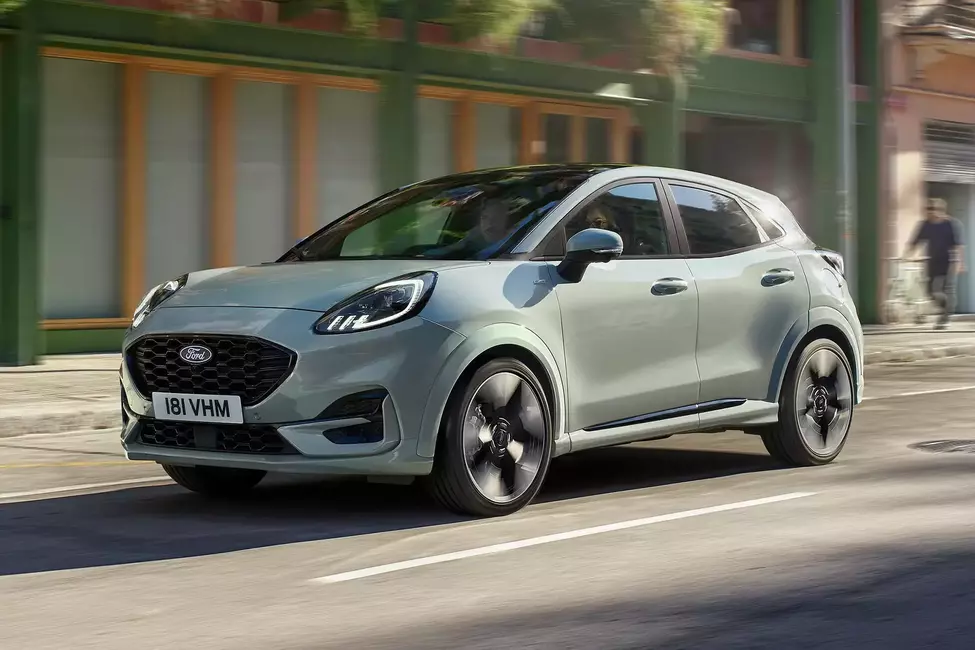What is car leasing?

What is business car leasing?
A brand-new car or van at low monthly rates? Business car leasing could be just what you’re looking for.
If you need a car or van for your business then there are several different options, especially if actually owning the car isn’t something you need to do. Long-term rental – leasing – can get you in a brand-new vehicle for far less money than buying it, and could be ideal for the business that wants to upgrade their car every few years.
Each method of leasing a business car has its advantages and disadvantages, but there are a few constant features. All are based on how many miles the customer expects to do during the lease period, and how much the vehicle is likely to be worth at the end of the contract. Each also works on a system of monthly payments, and each runs the risk of extra charges at the end of the contract if you do more than the agreed mileage limit or return the car with damage beyond normal wear and tear.
In this article we’ll look at the different methods of different car leasing to help you understand which could be best for your business.
How does business leasing work?
Most business leases begin with an initial payment, usually the equivalent of between three and 12 monthly instalments. The more you pay at the start, the lower your monthly payments will be.
Then you make monthly payments over the course of the contract length. Because you’re renting the car, rather than paying the full cost, these will be considerably cheaper than an equivalent Hire Purchase (HP) deal.
Depending on the type of lease you have, at the end of the lease you either return the car or pay a lump sum to own it. Some methods let you choose.
Business Contract Hire (BCH)
Pros of Business Contract Hire (BCH)
- Flexible mileage and contract length
- 50% of VAT is reclaimable
- Tax deductible payments
Cons of Business Contract Hire (BCH)
- Early termination is expensive
- Condition and mileage fees can apply
- No option to own the vehicle
One of the more well-known leasing arrangements for businesses, BCH lets you deduct at least 85% of your monthly lease payment from tax, up to 100% if your car produces less than 110g/km of CO2. If your business is VAT registered, you can claim back at least 50% of the VAT, too.
Once you choose a car you can adjust the length of the contract, which is typically between 24 and 48 months. Your mileage allowance is also adjustable, with a lower limit typically resulting in lower monthly payments.
An initial payment – typically an amount equal to between three and 12 monthly payments – is then followed by monthly instalments for the agreed contract length. You can often include the cost of maintenance. Then, at the end of the contract, you simply hand the vehicle back. As long as you’ve not gone over your mileage limit and there’s no damage beyond normal wear and tear, then there’s nothing else to pay.
Business Contract Purchase (BCP)
Pros of Business Contract Purchase (BCP)
- Low initial deposit/payment
- Car value can be written down against taxable profit
- No VAT on monthly payments
Cons of Business Contract Purchase (BCP)
- Vehicle must be listed as asset in accounts
- Condition and mileage fees can apply
- Monthly payments can be higher than equivalent BCH deal
Think of BCP as a business version of the very popular Personal Contract Purchase (PCP) product. Its attraction is in relatively low monthly instalments and flexibility at the end of the contract, letting you buy the car or return it.
As far as business paperwork goes, it’s not as simple as leasing, because the car appears on the balance sheet. Payments are not subject to VAT, and you can claim capital allowances and claim interest payments an expense.
BCP agreements also cover car tax for the first 12 months and you can often include vehicle maintenance costs in your monthly payments if you want.
Like a BCH deal, you choose the vehicle, pay a deposit amount and choose the length of the contract, declaring your anticipated mileage. The vehicle provider will then calculate the car’s worth at the end of the contract, using industry estimates, and the monthly payments, which aren’t subject to VAT (although any maintenance option is).
Once the agreement is over, you can either return the car with nothing else to pay, or you can make a balloon payment to own the car. This flexibility has proved popular with those that aren’t sure if they want to own the car at the start of the deal, and want the option.
Finance leasing
Pros of finance leasing
- Lower running costs for high-mileage drivers
- Opportunity to own vehicle
- VAT payable on rental, not purchase price
Cons of finance leasing
- Outstanding balance due at end of agreement
A finance lease lets VAT-registered businesses pay the entire cost of the car, including interest, over the rental period. At the end of the term, the customer MUST settle the balloon payment, which like other products is calculated at the start of the contract. It’s based on the price of the vehicle, the length of the agreement, the proposed mileage and the subsequent depreciation in vehicle value.
Depending on whether you’re leasing a car or a van, a VAT-registered business can reclaim between 50% and 100% of the VAT payments. If the business isn’t VAT registered, the payment can be spread across the length of the contract, and monthly payments can be offset against taxable profits.
At the end of the agreement, the vehicle can be sold.
Business Lease Purchase
Pros of Business Lease Purchase
- No VAT charged on monthly payments
- Value can be written down against company profits
Cons of Business Lease Purchase
- No flexibility at contract end
- Risk of negative equity
A business lease lets you rent a vehicle rather than buying it outright. It’s generally not as popular as other products because it tends to lack flexibility – this is a pure finance package, with no add-ons like maintenance available. At the end of the rental period, you must buy the vehicle.
Like other lease products, you pay monthly instalments based on a proportion of the total price of the vehicle, taking into account proposed mileage and estimated depreciation. Once the agreement finishes, you can’t give the vehicle back – you have to pay the outstanding balloon payment to take ownership.
Business car leasing FAQs
Possibly, but it may not be financially wise. A lot depends on the type of arrangement you have, what the current value of your vehicle is and how much you still have to pay. It’s best to speak to your leasing provider to find out your options.
Also known as company car tax or BIK, this is the tax a private individual needs to pay if they use their company car for personal use. If it's used only for work, kept at the business address outside of work hours and never used for personal driving – including commuting – then the car can be classed as a pool car. In that case no company car tax is due from you because pool cars tend to be used by more than one person.
Business lease products and their equivalent personal lease options may seem relatively similar, but there’s one big difference – if you’re registered for VAT, your business can reclaim 50% of the VAT on monthly payments and all of the VAT on a contract maintenance charge. However, a non-VAT-registered business can’t.
A business lease deal could also get you a vehicle price lower than a private individual could find, and some providers offer support to business customers – such as a fleet management – that personal customers won’t get.
But – and it’s a big but – any private use of a car on a business lease means you can’t reclaim VAT. If that happens, a business could claim the monthly cost of the lease against its profit – at least 85% and up to 100% if it’s a van, or a car that emits less than 50g/km of CO2 according to official figures. You’ll also need to think about company car tax, or to give it its proper name, benefit-in-kind tax.
Browse our most popular models

24/09/2024
Best Car Deals for New and Used Cars
Whether you're looking for the best PCP deal, huge savings with a great car leasing deal or car finance discounts, we’ve searched to find the best car deals for you.
Best 0% APR Car Finance Deals
If you're looking for a 0% car finance deal on a new car, you've come to the right place. We've searched to find the best 0 interest finance car deals out there to help you save money.
Best PCP Car Deals
Personal Contract Purchase (also known as PCP) could allow you to get your hands on a new car without needing to stump up a significant sum of cash all at once. And to help you out, we've rounded up all the best PCP car deals on offer in the UK today.
Promotions
Trustpilot Reviews
Get our latest advice, news and offers
Keep me updated by email with the latest advice, news and offers from heycar.
By submitting you agree to our privacy policy














